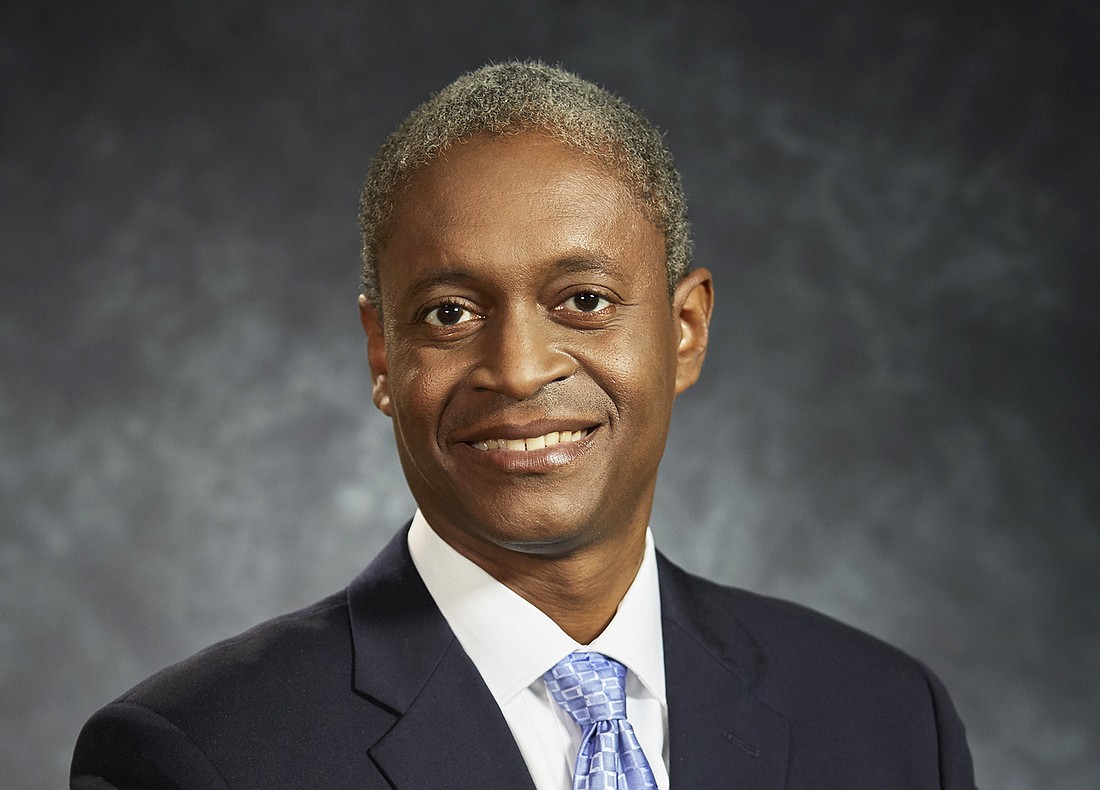
As spring turns into summer, economists’ thoughts turn to new college and high school graduates entering the labor market for the first time.
With unemployment at its lowest rate of the century, the timing may work out well for this year’s graduates.
“It’s a good labor market to be entering into,” said Raphael Bostic, president and chief executive officer of the Federal Reserve Bank of Atlanta.
“There’s hiring happening all over the place,” Bostic said in an interview at the Atlanta Fed’s Jacksonville branch.
“We’re adding jobs faster than just replacement. So, we need new workers.”
The national unemployment rate dropped to 3.8 percent in May, with a net gain of 223,000 nonfarm jobs.
“Those numbers are pretty consistent with what we’ve been hearing,” Bostic said during the interview just after the U.S. Bureau of Labor Statistics released its monthly employment report.
Technology is changing the labor market, so Bostic doesn’t have specific advice for new graduates planning their careers. But, he doesn’t think young people necessarily need guidance from previous generations.
“They have instincts on where to look that are different than I have,” he said.
Bostic sees optimism among young adults that they will not only find a well-paying job but they’ll find a career they consider rewarding.
“I think that’s a good thing,” he said.
“They’re probably not realistic, but they’re not supposed to be.”
Bostic came to the Atlanta Fed a year ago and has spent a lot of time meeting with business people in the region, including the Jacksonville area. He thinks Jacksonville’s labor market outlook mirrors the national perspective.
“The challenges we see in Northeast Florida are very similar,” he said.
One potentially strong growth sector for the area is health care, he said.
“My sense is there is a lot happening in the technology space as well,” he said.
Bostic pays close attention to the national economy as one of the 12 voting members of the Federal Open Market Committee, the arm of the Fed that sets U.S. monetary policy.
The committee includes the seven Federal Reserve Board governors plus five of the 12 regional Fed bank presidents, on a rotating basis. This year is a voting year for the Atlanta Fed president.
The latest data on the U.S. gross domestic product, the broadest measure of economic activity, shows it rose at an annual rate of 2.2 percent in the first quarter, up from 1.2 percent the previous year.
“We are seeing good economic activity,” Bostic said.
“That’s a fair amount of extra business activity and productivity.”
However, as Bostic said last month during a talk to the World Affairs Council of Jacksonville, uncertainty over U.S. trade policy may be holding back some business activity.
“Any time there is a sense of uncertainty there is some trepidation about the future. People are going to worry,” he repeated last week.
“The businesses I talk to say they don’t have a clear sense of which investments are going to be more profitable.”
Bostic also said consumers have some uncertainty. While lawmakers cut federal income tax rates at the end of last year, there is confusion about how the new tax laws will be applied, he said.
“Household spending is robust, but it hasn’t accelerated as much as might have been expected,” he said.
The Jacksonville Fed branch at 800 Water St. opened in 1987 but no longer needs all 198,000 square feet of space in the building.
The Fed began marketing excess office space to Jacksonville businesses in 2009 after it stopped processing checks in the facility, leaving it with more capacity than it needs.
“If we were building it today we would probably build it differently,” said Chris Oakley, vice president and regional executive for the Jacksonville branch.
Oakley said the building currently has 20,645 square feet of space leased to other businesses and 28,310 square feet available for lease.
The building still handles cash processing services and is tightly secured. Bostic said the Fed probably wouldn’t consider looking for a smaller facility.
“We still have some specialized functions that make the building valuable for us,” he said.
“We think it’s a good building.”